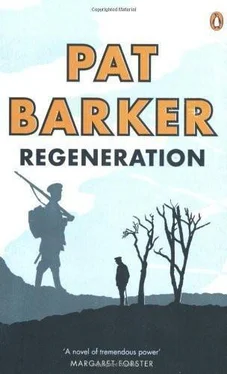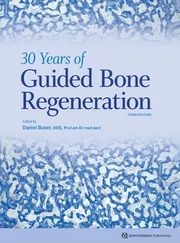Aldeburgh was the end of the line, but the train, as if reluctant to accept this, produced, as Rivers stepped down on to the platform, an amazing burst of steam. He stood, looking up and down, as the train’s hissing subsided into grunts, and the steam cleared. Burns had promised to meet him, but his memory wasn’t good, and, faced with the empty platform, Rivers was glad he had the address. But then, just as Rivers was resigning himself to finding the house on his own, Burns appeared, a tall, emaciated figure wearing a coat of stiff herringbone tweed that reached almost to the ground. He’d obviously been running, and was out of breath. ‘Hello,’ he said. Rivers tried to judge whether Burns looked better or worse. It was hard to tell. His face in the light of the naphtha flares was as expressionless as beaten bronze.
‘How are you?’ they asked simultaneously, and then laughed.
Rivers decided he should be the one to answer. ‘A lot better, thanks.’
‘Good,’ Burns said. ‘It’s walking distance,’ he added across his shoulder, already striding off. ‘We don’t need a taxi.’
They came out of the station and began walking downhill, through the quiet cold fringes of the town, past the church, through streets of huddled houses, and out on to the front.
The sea was calm, almost inaudible, a toothless mouth mumbling pebbles in the darkness. Instead of walking along the path, Burns struck out across the shingle and Rivers followed, to where the tide had laid bare a thin strip of sand. The crunch and slither of shingle under their feet blotted out all other sounds. Rivers turned, and saw the bones of Burns’s face gleaming in the moonlight. He wondered what he made of the tangles of barbed wire that ran along the beach, with only two narrow channels left for fishing boats and for the lifeboat to come and go. But Burns seemed not to see the wire.
They stood together at the water’s edge, two black shadows on the pale shingle, and small waves creamed over at their feet. Then the moon came out from behind a bank of dark cloud, and the fishermen’s huts, the boats lined up in two short rows behind the wire, and the heaped nets, cast shadows behind them almost as sharply edged as day.
They returned to the path and began walking along the terrace of houses, which here and there had gaps. Many of the houses were shuttered and had sandbags piled against the front doors. ‘The sea’s been known to pay visits,’ Burns said, following the direction of Rivers’s gaze. ‘I was here once when it flooded.’ Evidently sandbags brought back no other memories.
‘This is it,’ he said a few minutes later, stopping in front of a tall but extremely narrow house. At this end of the foreshore the sea was much closer, turning and turning in the darkness. Rivers looked out and caught a glint of white. ‘What’s along there?’
‘The marshes. More shingle. I’ll show you tomorrow.’
They groped their way into the hall, closing the door carefully behind them before Burns switched on the light. His face, deeply shadowed from the unshaded bulb, peered anxiously at Rivers. ‘I expect you’d like to go upstairs,’ he said. ‘I think I’ve given you a towel…’ He looked like a child trying to remember what it was that grown-ups said to newly arrived guests. He also looked, for the first time, deranged.
Rivers followed him up the narrow stairs and into a small bedroom. Burns pointed out the bathroom and then went downstairs. Rivers put his bag down, bounced on the bed to test the mattress, and looked round. The walls were covered with paper of an indeterminate and confusing pattern, the background colour faded to the yellow of an old bruise. Everything smelled of the sea, as if the furniture had soaked it in. It reminded him of childhood holidays in Brighton. He splashed his face in the bowl, then, turning off the light, opened the shutters. His room overlooked the sea. The wind was rising, and with each gust the coils of wire twitched as if they were alive.
No sign of Burns’s parents. Rivers had mistakenly assumed he was being invited to meet them, since a large part of Burns’s letter had dealt with their anxieties about his future. But apparently not. This was probably their room. The house was so narrow there couldn’t be more than one, or at the most, two small rooms on each floor.
The evening passed pleasantly enough. No mention of Burns’s illness, no mention of the war. These were evidently taboo topics, but they talked about a great range of other things. Whatever else the war had done to Burns, it had certainly deepened his love for his native county. Suffolk flowers, birds, churches, he was knowledgeable about them all. More recently, he’d become interested in the preservation of country crafts. ‘Old Clegg’, who was apparently something of a local character, had promised to teach him flint-knapping, and he seemed to be looking forward to that. Even before the war he’d been very much a countryman in his interests, rather like Siegfried in a way, though without Siegfried’s passion for hunting.
When the conversation turned to other matters, Burns was very much the bright sixth former, idealistic, intolerant, naïve, inclined to offer sweeping generalizations as fact, attractive in the freshness of his vision as such boys often are. Rivers thought how misleading it was to say that the war had ‘matured’ these young men. It wasn’t true of his patients, and it certainly wasn’t true of Burns, in whom a prematurely aged man and a fossilized schoolboy seemed to exist side by side. It did give him a curiously ageless quality, but ‘maturity’ was hardly the word. Still, he was better than he’d been at Craiglockhart, so perhaps his conviction that if he could only get back to Suffolk and forget the war he would be all right had been proved correct. But then why am I here? Rivers thought. Despite Burns’s reluctance to mention his illness, Rivers didn’t believe he’d been invited to Suffolk to talk about church architecture. But it would be quite wrong to force the pace. Whatever was bothering him, he would raise the matter in his own time.
Rivers woke the following morning to find the beach shrouded in mist. He leant on the window sill, and watched the fishing boats return. The pebbles on the beach were wet, though not from rain or tide. The mist clung to them like sweat, and the air tasted of iron. Everything was so quiet. When a gull flew in from the sea and passed immediately overhead, he heard the creak of its wings.
Burns was already up, in the kitchen by the sound of things, but not, Rivers thought, preparing breakfast. Nothing in the way of dinner or supper had appeared the night before, and Rivers had hesitated, on his first evening, to go into the kitchen and forage for food, though he suspected that might be the only way of getting any.
He washed, dressed, shaved, and went downstairs. By this time the mist on the beach had begun to thin, but it was cold for the time of year, and the sight of a fire in the first floor living room was welcome. He went down a further flight of stairs into the kitchen and found Burns at the kitchen table with a pot of tea.
‘There’s some cereal,’ he said, pointing.
He sounded shy again, though last night he’d begun to talk quite freely by the end of the evening, just as Rivers, caught between the roar of the fire and the roar of the sea, had started nodding off to sleep. ‘I’m sorry I had to go to bed so early,’ Rivers said, reaching for the cereal packet.
‘’S all right.’ Visibly, he remembered what it was he was supposed to ask next. ‘Did you have a good night?’
‘Fine.’ Rivers bit the reciprocal question back. He’d heard part of Burns’s night. Obviously, however hard Burns tried to thrust memories of the war behind him, the nightmare followed.
Читать дальше












